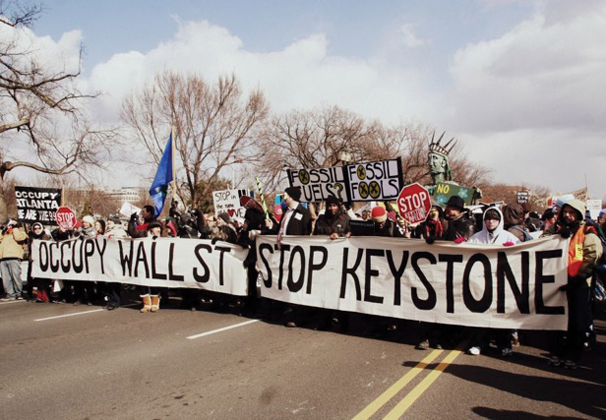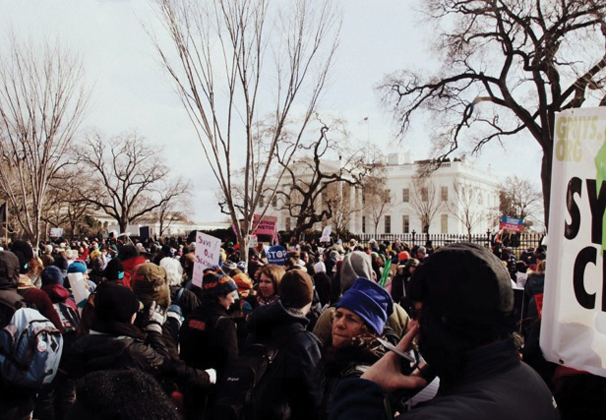
On Sunday, 40,000 people converged on the Washington Monument to urge President Barack Obama to keep his promises on environmental issues.
The Forward on Climate rally was coordinated by 350.org, the Sierra Club and the Hip Hop Caucus, three of the largest environmental justice organizations in the United States.
According to protesters, the first and most significant step in protecting the environment in the long term is to reject the Keystone XL pipeline plan.
This plan, proposed last year by the company TransCanada, concerns extending an existing pipeline from tar sands in Alberta, Canada, to the Gulf Coast. Tar sands are sources of unrefined, toxic oil. Due to the danger of spills and leaks, this presents harmful environmental risks.
The speakers at the rally emphasized this point. Bill McKibben, the founder of 350.org, and U.S. Sen. Sheldon Whitehouse were among rally participants.
Last year, President Barack Obama delayed his decision on the project. After taking new precautions, TransCanada has re-proposed the plan. According to the TransCanada website, pipelines are the safest way to transport crude oil.
Julianne Warren, an NYU environmental studies professor and member of NYU Divest, an organization that focuses on encouraging the university to avoid investing in fossil fuels, disagreed.
“There’s nothing we can do to change the physics. If we burn that 240 gigatons of carbon that are in the tar sands, said Dr. James Hansen, the climatologist at NASA, it’s game over for the climate,” she said.
The pipeline would carry 830,000 barrels of oil per day. According to TransCanada and advocates of the pipeline, it would triple American production of tar sands oil, decrease our dependence on foreign oil and create jobs.
American investor and environmentalist Tom Steyer, who spoke at the rally, argued that the pipeline is not a sound investment.
“The time for business as usual has passed. We can’t afford it,” he said. “Today is different because now, for the first time, we have to look comprehensively at all the costs.”
Reflecting on the march, Gallatin sophomore and NYU Divest member Alyssa Evans expressed some doubt.
“The rally will draw attention, which puts public pressure on politicians. But does it actually make them re-evaluate what they’re doing? I don’t know,” Evans said.
Yet others remained positive, such as Hannah Milnes, a freshman at Columbia University and a member of the Barnard-Columbia Divest team.
“It was incredibly moving, affirming and exciting to join voices with all of these movements and demand that the president listen to his people,” Milnes said.
The main issue at the rally was the world’s long-term plan for the environment. Environmental activists understand the importance of acting now. TransCanada, too, is determined.
At the rally, Van Jones, the former special adviser of green jobs to President Obama, shifted the spotlight accordingly.
“The decision is in your hands, Mr. President,” he said.

A version of this article appeared in the Tuesday, Feb. 19 print edition. Costanza Maio is a contributing writer. Email her at c[email protected].
























































































































































